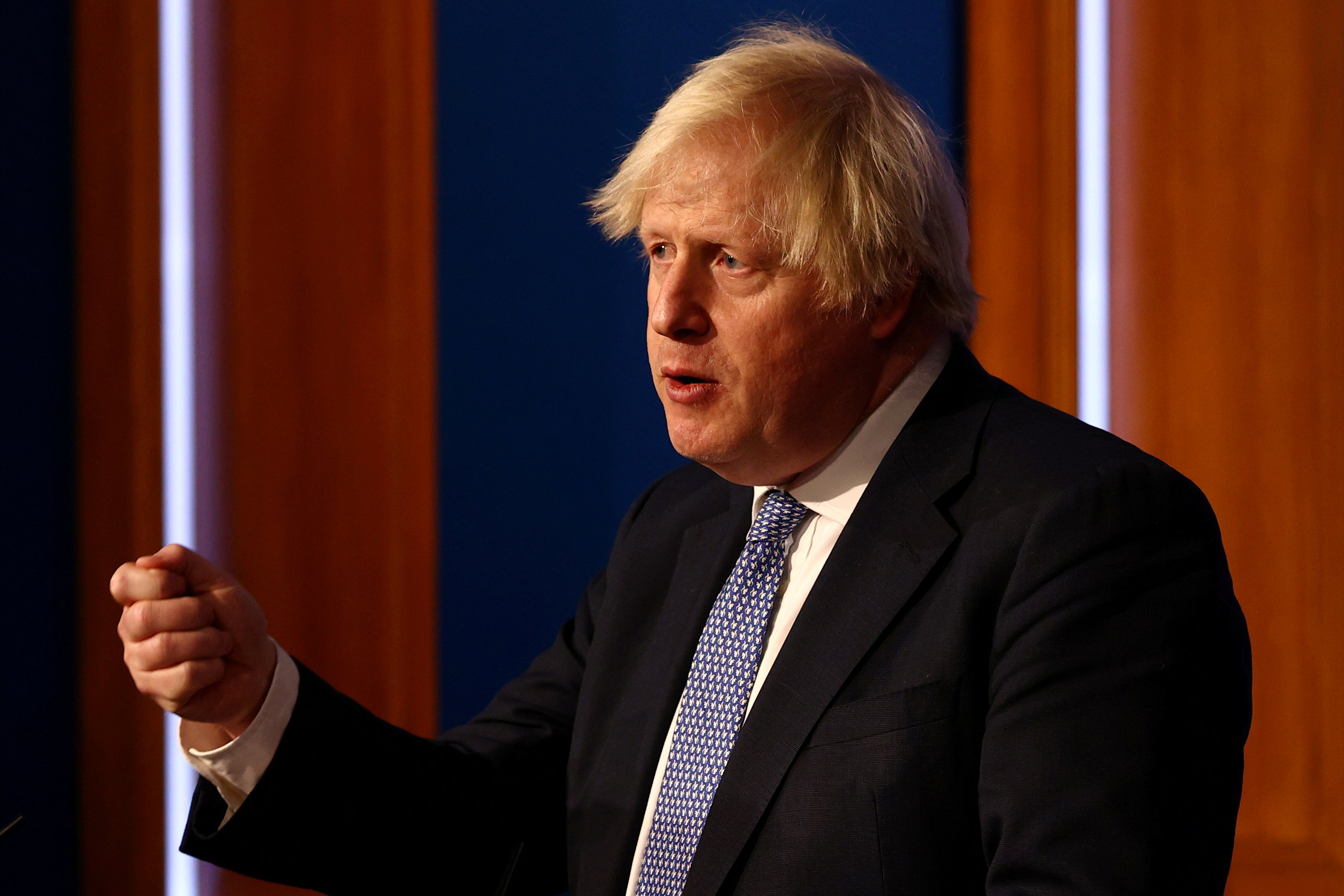Will Boris Johnson finally get his comeuppance for his funding breach?
In its report, the Electoral Commission suggested the PM misled the public, and Lord Geidt during his investigation, but it’s unlikely to do anything to Johnson’s already diminished reputation for probity, writes Sean O’Grady


In terms of their personal conduct and behaviour, no prime minister, before, during or after their period office, has been investigated as often and as embarrassingly as Boris Johnson. Almost every official watchdog has snapped at him, and his life is never complete without some sort of scandal on the go. It amounts to quite an impressive CV, in a perverse way.
In previous lives as a journalist and a more junior MP he has been interrogated and held to account, and indeed sacked, by figures as prominent as Lord Black, Max Hastings and Michael Howard. The latest investigations, by the cabinet secretary into “partygate” and the newly published report from the Electoral Commission on the funding of the Johnson’s Downing Street flat are only the latest in that long line of scrapes and skirmishes.
Also pending are inquiries by the independent parliamentary commissioner for standards, Kathryn Stone, into the alleged undeclared benefit to Johnson of the flat’s refurbishment as an undeclared interest; the Commons standards committee into reforming and strengthening rules on conflicts of interest and its own procedures (with implications for Johnson); a still possible metropolitan police investigation into breaches of the lockdown laws; and one by the Greater London Authority centred on possible misconduct in public office during his close friendship with the entrepreneur and IT consultant Jennifer Arcuri. She has said she will fully cooperate with the Johnson probe. The Independent Office for Police Conduct has already concluded that Johnson should have declared an interest in Arcuri, and that his failure to do so represented a breach of the GLA code of conduct. The last time Johnson was in direct trouble with the police was when they were called out to a domestic disturbance at the then Carrie Symonds’ flat in 2019. He is, of course, no stranger to legal actions.
It’s not unusual, then, for Johnson to find himself in a tight corner, and, presumably, has developed his advanced evasionary skill-set since at least his time at Eton. Or perhaps there is some evolutionary explanation, some dominant gene of low cunning, that exloans his unnatural ability to squirm his way out of problems and skip along to the next self-created crisis.
Still, there’s a problem with Lord Geidt, his independent adviser on ministerial standards (including his own). Geidt got the job in April after a considerable delay that followed the resignation of the previous incumbent, Sir Alex Allan. Sir Alex quit over Johnson ignoring his report into Priti Patel and bullying in the Home Office. Now it is Lord Geidt’s turn to be humiliated by Johnson.
In his own report into the Downing Street flat refurb, Geidt said that Johnson had told him he knew nothing about the payments until immediately prior to media reports in February 2021. To understand the full scale of the prime minister’s contempt for Geidt and the office he holds, we need to read the relevant paragraph in Geidt’s own “Annual Report by the Independent Adviser on Ministers’ Interests”:
“For the credibility of this inquiry, I have tested the assertions of Lord Brownlow and the relevant political and government officials that at no point in the eight months until late February 2021, as media reports were emerging, was the prime minister made aware of either the fact or the method of the costs of refurbishing the apartment having been paid. I have spoken to these individuals in person; they have confirmed to me that these assertions are correct. In particular, Lord Brownlow behaved in a confidential manner consistent with his own experience of blind trusts. I have also spoken in similar terms to the prime minister who confirms that he knew nothing about such payments until immediately prior to media reports in February 2021. At that point, the prime minister immediately sought the necessary advice about his interests and, as a consequence, settled the full amount himself on 8 March 2021.”
The phrase “for the credibility of this inquiry” is particularly unfortunate now that the assurance given to Geidt by Johnson can be seen to have been unfounded in reality. The Electoral Commission, which possesses legal powers Geidt doesn’t have (indeed he has no powers to do his job behind whatever the prime minister sees fit to chuck his way), was able to uncover damning, unequivocal, evidence that Johnson had indeed sent Brownlow a WhatsApp message in November 2020 “asking him to authorise further, at that stage unspecified, refurbishment works on the residence”, to which he agreed. According to the EC timeline; “29 November 2020: the prime minister messaged Lord Brownlow via WhatsApp asking him to authorise further, at that stage unspecified, refurbishment works on the residence. Lord Brownlow agreed to do so, and also explained that the proposed trust had not yet been set up but that he knew where the funding was coming from.”
It could scarcely be more embarrassing for all concerned. Given the PM’s relative political weakness, Geidt is in an unusually strong position. If he chose to speak out and/or resign that would pulverise Johnson’s already diminished reputation for probity. Yet what use are any apologies or promises from Johnson that Geidt might extract? The only thing worth dragging out of Johnson’s grip for Geidt would be the right to initiate inquiries and gain statutory powers of evidence-gathering and censure. A former private secretary to the Queen, and a military man and securocrat, Geidt must have some experience of intrigue himself, and he’s no fool. But, like many others, he’s no match for the freakishly tricky Boris Johnson.



Join our commenting forum
Join thought-provoking conversations, follow other Independent readers and see their replies
Comments